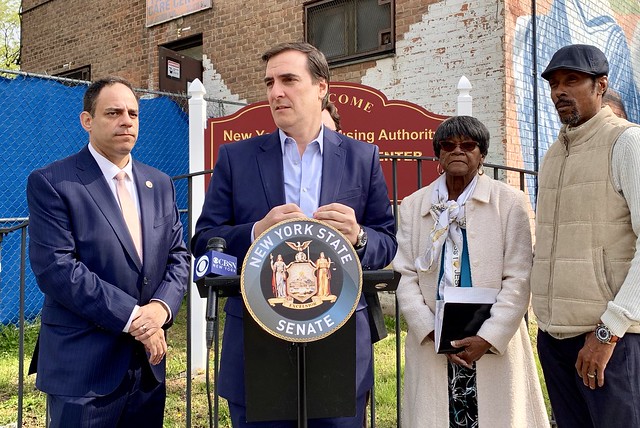
Each day, local governments deliver for New Yorkers, but the services they provide are threatened by legislation that would drastically increase costs for the Empire State’s cities, counties, towns, and villages. A bill awaiting action from Gov. Kathy Hochul’s office would create new liabilities, which will divert taxpayer funds away from critical community services and reduce our ability to invest in our future.
While S.74A, which will expand the categories of payouts in wrongful death lawsuits, is well intentioned, it will attract a torrent of speculative litigation that will strain local government budgets. Due to New York’s uniquely hostile liability environment, municipalities are already roped into a disproportionate number of lawsuits, and they are often sued when they have little or no connection to the underlying matter. As such, before creating new and expansive liabilities, lawmakers should work to fully overhaul the laws that make New York’s civil justice system the most expensive in the nation.
Unfortunately, ignoring the fact that they are funded by taxpayers, our public institutions are consistently targeted, and perceived as a deep-pocketed source for potential settlements. According to a survey published by Governing Magazine, New York City spends more on lawsuits than the next 19 largest U.S. cities combined. And this will only get worse if liability becomes nearly limitless under this bill’s broad language. Insurance premiums, too, will skyrocket, wasting additional funds on liability coverage.
Every dollar spent on liability is a dollar taken away from programs that improve efficiency and preparedness, like the modernization of government cybersecurity and IT systems. At the start of the pandemic, we saw firsthand the importance of a robust and modern IT infrastructure. The rapid switch to remote operations strained government agencies, reducing access to essential services. As we face new public health challenges, it is critical that local governments have the funds necessary to invest in advanced IT systems – funds that will be wasted on liability costs if S.74A becomes law.
Government entities are also working hard to keep people, property, and infrastructure safe from extreme weather events. But money wasted on liability costs will undermine investments in climate resiliency projects, including updating drainage systems, reinforcing bridges and tunnels, and building sea walls.
Along with investments in technology and climate resiliency, legislation that drastically increases liability costs will squander funding that should be going to many of the basic services that people often take for granted. Road maintenance, sanitation, public transport, and emergency services will all be in danger. Unfilled potholes, trash on sidewalks, late buses, and unreliable emergency services will send many packing and leaving the state altogether, as more than 350,000 people did between 2020 and mid-2021.
If signed into law, S.74A will increase costs and force municipalities to tighten their belts, limiting important investments in our communities. Reduced budgets will put IT modernization, climate resiliency, public safety, and even basic services like trash collection on the chopping block, with devastating consequences. As she considers this legislation, Governor Hochul should keep in mind the unique challenges local governments face and to work to protect taxpayers’ money from being wasted on lawsuits and liability.
Peter Baynes is executive director at the New York State Conference of Mayors.









